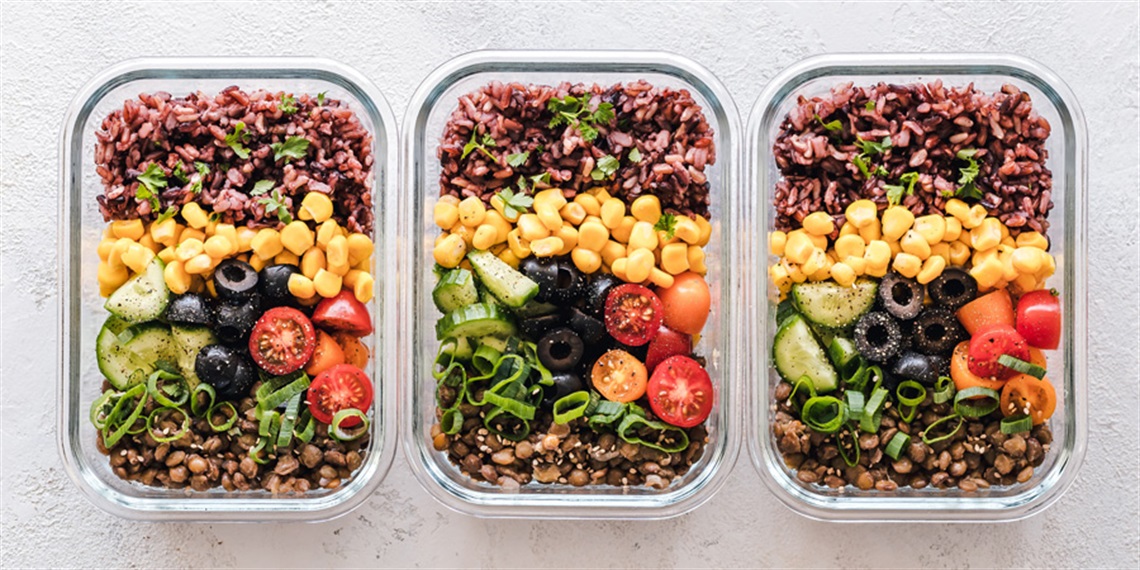Weighing up the pros & cons of meal subscription
Published on 18 October 2021

Meal subscription services are as popular as ever right now. Whether you’re short on meal-prep time or not that way inclined when it comes to cooking, you’ve no doubt pondered if it’s worth signing up.
To help you keep your goals on track and get the best nutrition and value for your money, we’ve asked Aquanation and Aquahub personal trainer and dietitian Byron Manning for his tips.
Let’s start with the pros
You can’t turn on the TV or flip through a magazine anymore without seeing an ad for a meal kit service. And seriously, who hasn’t had a friend offer a free box or discount code in the last 12 months?
“For busy people it’s nice to have something waiting for you or ready to cook, rather than having to prepare or source ingredients yourself,” says Manning, adding that many of these companies have come a long way in recent years with their quality and variety of foods.
But it’s not all about convenience. Subscription services can also help keep your health goals on track, especially when it comes to calorie intake and portion size control.
“It’s common for people when they’re cooking to not necessarily weigh or know the calories of their meal,” says Manning.
Meals are also usually nutritionally balanced, so if you struggle incorporating leafy greens into your diet, supplementing with meal kits may help ensure that you’re eating a better assortment of vegetables and grains.
There are also a growing number of specialised meal kit services that cater to dietary needs and preferences, such as vegan and gluten-free diets.
The cons
Meal kits often market themselves on their affordability and compare favourably to getting similar meals from restaurants. However, the cost comparison doesn’t always hold up when compared to buying the groceries yourself and doing your own prep work.
The convenience of meal kits can be pricey and is something worth keeping in mind, advises Manning.
“Budgeting is not necessarily a benefit, it might appear so from the beginning with introductory offers for some brands, but if you compare that to cooking yourself you’ll save a lot more in the long run.”
And if you really want to keep your health and fitness goals on track, take a second to consider what’s being served up on your plate.
“In a lot of cases what you get is one standard serving size, and that doesn’t suit everyone. What they’re providing you may not match the energy required, it could be too much or too little,” says the dietitian.
As a big advocate for learning basic cooking skills for health, Manning says having someone else do all the legwork for you means you lose out on this important life skill.
How to go about outsourcing your meal prep
Manning’s first tip is to do your homework.
“I’d recommend going through the reviews, not the testimonials on their website, but reading a variety of reviews online to see what other people are saying.”
Another suggestion is to see the packaging in action.
“Remember you can go on YouTube and watch these boxes being unboxed to get an idea of what you’d actually be getting after ordering from these services.”
Lastly, be sure to always read the food nutrition labelling. Just because something is labelled as healthy, may not always mean that it is. If you’re watching your salt intake, for example, be wary of meals and recipes with a high sodium content.
Manning also suggests using a meal prep service sparingly, and when you need it most.
“Use it when you really need to, so perhaps just dinner or lunch meals.”
This way, he says, it allows you the time and flexibility to prepare breakfast or snacks, as well as freeing you up to enjoy other things.